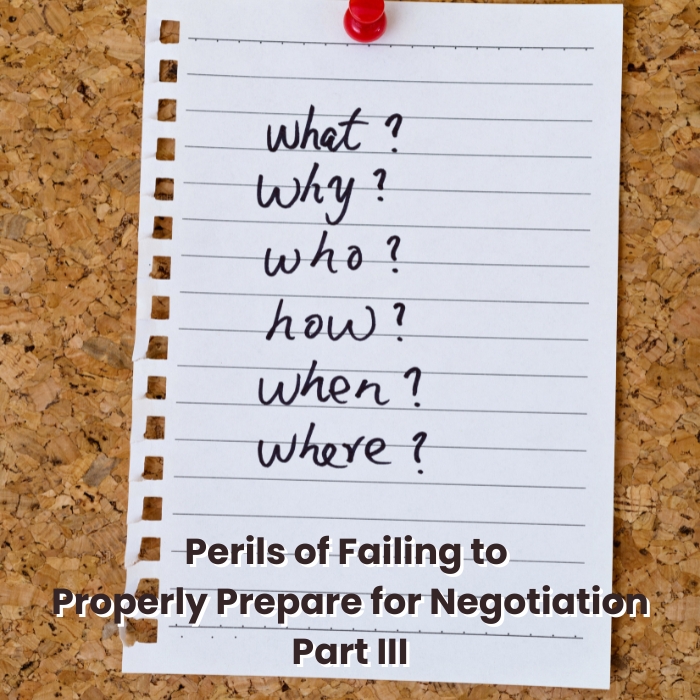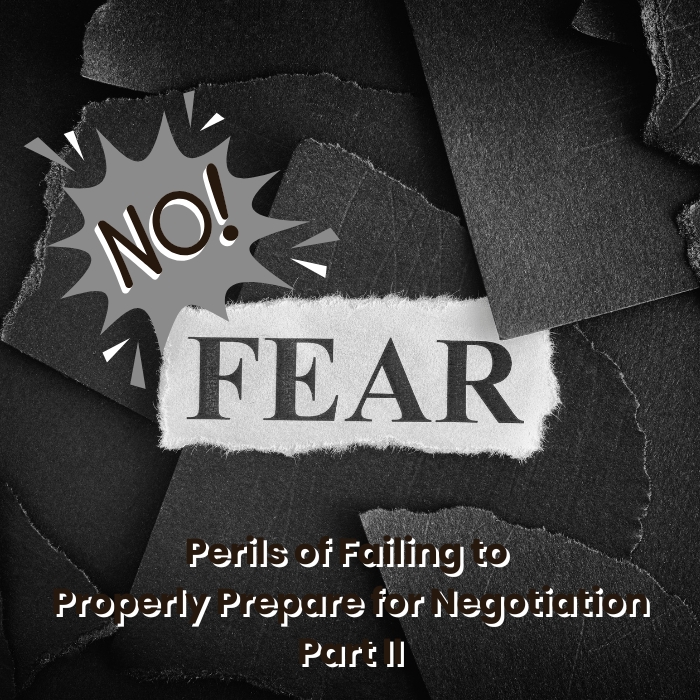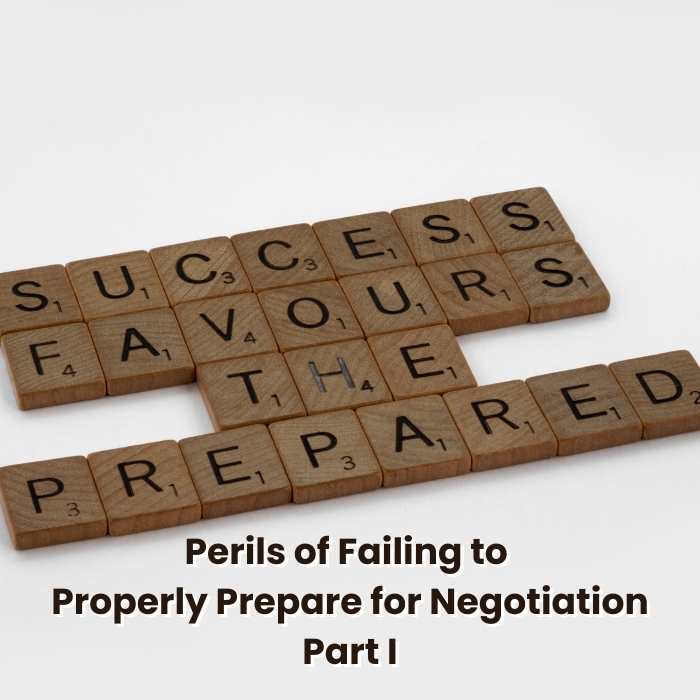
Telling Someone What They Want to Hear is Not the Smart Way to Build Trust
Not the Smart Way to Build Trust
There is a lot of misinformation out there on how to build trust and/or build rapport. This catches my attention and concerns me as trust and rapport are two key elements of successful negotiation. Teaching tactics to purportedly build trust based on myths and misconceptions is damaging and counterproductive. As all of life is a negotiation, this is particularly important. You want to be as effective as possible in negotiating your best life. Building a skillset based on faulty information will inhibit your ability to do this.
One example of this myth-building jumped out at me recently in an article I read. It touted that building deep trust and rapport required the following things:
Justify the failures of the other person. i.e. ‘It’s not your fault that it didn’t work out. [Fill in appropriate excuse for them]’
Throw stones at their enemies. i.e. ‘I swear he’s the worst boss ever. I heard s/he [fill in appropriate barb]’
Help them feel more positive about the future. i.e. ‘Things are going to get better. You’ve got so much going for you. You’re the [fill in appropriate compliment].’
I understood the point the author was making. There is a certain attraction to having people around who prop us up unconditionally. Sadly, this is probably true in both our personal and professional lives. I’m sure if you think of the people closest to you, there’s a good chance they do one or more of these things for you. They’re probably even well-intentioned.
But is this good advice? Is this a meaningful or productive way to build trust and rapport? Is it authentic? I invite you to consider that it is not and that it does not serve you.
By all means, be positive. In fact, I encourage my clients to find something to genuinely compliment the other party about in any negotiation as a means to build rapport. But the key is ‘genuine’. In fact, in my article on ways to build rapport, my #1 point was to ‘be yourself’. Being candid also scored high on the hit list of ‘to do’s’.
Similarly, my article on how to build trust focused on the importance of integrity, credibility and reputation.
Routinely touting the ‘it’s not your fault, it’s their fault, you’re great’ line ultimately does a disservice to those in our lives.
Is this really how we want to encourage our children to live – being solicitous even when it’s disingenuous? Is this the environment we want to surround ourselves with? If we choose that path, how do we grow, take ownership, stretch ourselves to be better?
As a practical matter, this strategy also ultimately breaks trust and rapport in my experience. My husband routinely tells me I look great, even when I look like Hell on wheels. While I appreciate the sentiment, it actually causes me to mistrust his input at all. Likewise, he compliments my cooking whether it’s Kraft dinner or gourmet cuisine. Again, however well-intentioned, this undermines my trust of his input.
And we’ve all had that friend who tells us an outfit looks fabulous on us and after shelling out big bucks we never wear it as it was really too tight and bulged in unflattering ways so we’re never really comfortable in it.
Sometimes these ego-boosting tactics are more subtle. Even then, intuitively we come to discount the feedback and don’t trust it.
The same holds true in business. The person who gushes that every idea is brilliant may make us feel better in the moment, but ultimately, they hold us back. We come to know not to trust their judgment.
Far better to give and receive honest, constructive feedback that pushes us to step up and be better. Better to be challenged and supported with positive input to improve. Better to build a foundation of trust, rapport, and respect based on authentic, useful information. That’s the key to building solid relationships that lead to best outcomes.
Instead of throwing glib, knee-jerk, insincere platitudes, what if instead, we listened more deeply, asked questions to show interest and understand better, stayed open and connected? What if we sought to be kind and honest. What if our goal was to find best outcomes, not only for ourselves, but for the other party in any given interaction?
Something to think about.






